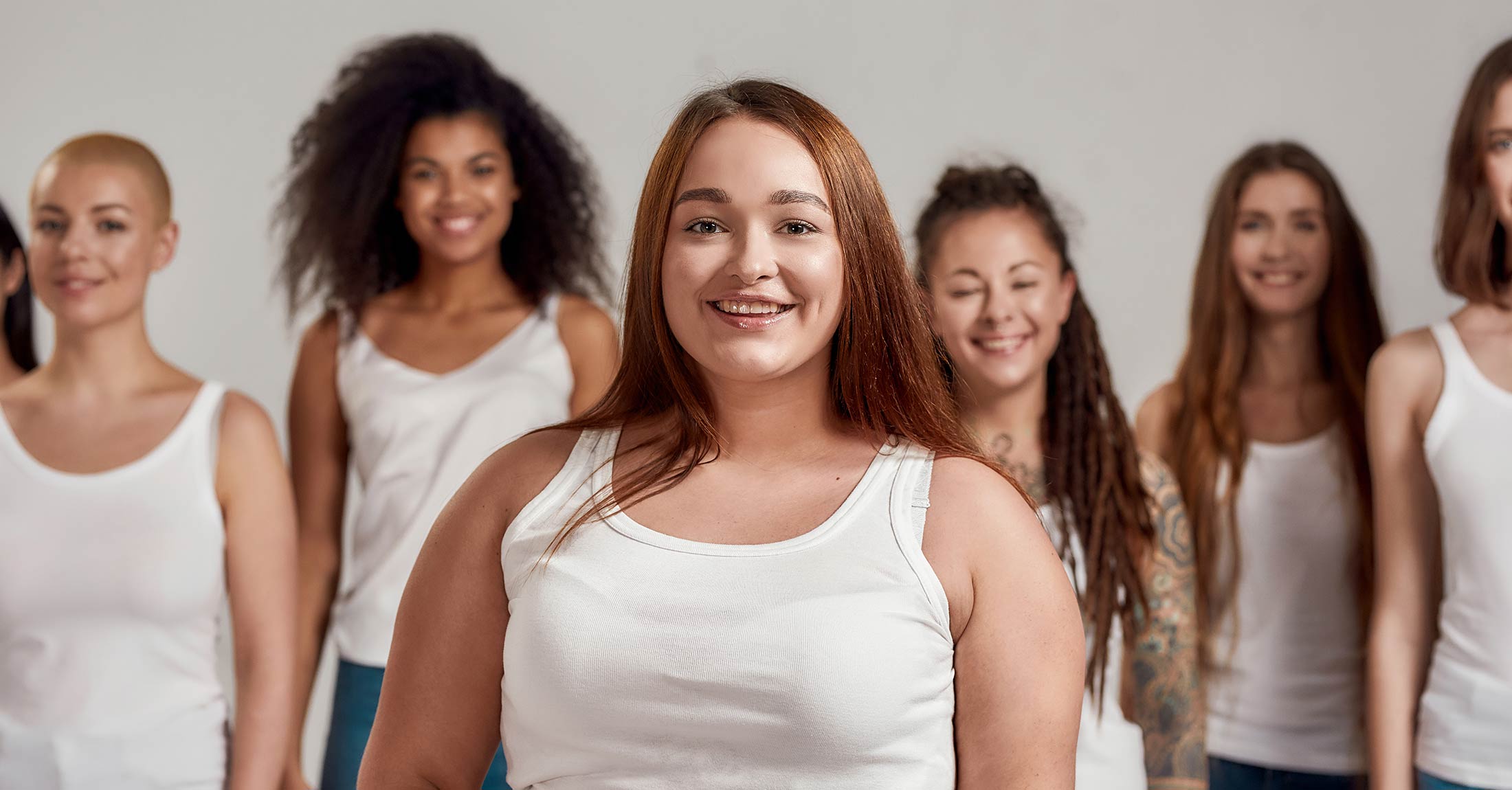Feel Better About Your Body Without Focusing on Weight or Appearance
It is no surprise that thinness is highly valued in our society and that many women struggle to feel good in their bodies. Constant comparisons to the supposed ‘ideal body’ leads to unrealistic expectations and a sense of dissatisfaction with your body shape. Attempts to change the body may quickly follow as an attempt to feel better.
Here’s the thing, feeling good in your body is not about how your body looks, what it weighs, or what shape it is. If you broaden your perspective and take a look at yourself and your body as a whole, you can begin the journey towards a better relationship with your body.
Ten Tips to Feel Better About Your Body Without Focusing on Weight or Appearance:
1. Be aware of unrealistic portrayals of bodies in the media.
Models are underweight, airbrushed, photoshopped, and do not realistically represent the ethnic and racial diversity of the human population. Be critical of how bodies are portrayed in magazines, on television, in music, on social media and in any other media you consume. Think about underlying messages behind the images – be critical of anything that implies that happiness will come from changing your body shape or weight.
2. Focus on what your body can do instead of what it looks like.
Have you ever sat down and appreciated what your body does every day? You can start by reflecting on the basic biological functions that keep you alive – your body breathes, your heart pumps, your immune system fights infections, your digestive system breaks down food. Now think about what your body allows you to do every day – go to work, go to school, go for walks/bike rides/swims, play with your children/nieces/nephews/siblings, engage in your favourite hobbies. Spend time on a daily basis cultivating gratitude for all that your body does instead of criticizing it for not looking like the airbrushed and photoshopped images you see in the media.
3. Think about how you value yourself.
When you think about yourself, do you think of yourself as a whole person who has a unique set of personality and character traits, interests, relationships, aspirations, hobbies, spirituality, values, and achievements? Does what you look like overshadow these aspects of yourself to the point that appearance is the only thing you see or care about? If so, take time to think about your accomplishments, efforts, what you’re doing, character, interests, and so on and make explicit note of all that makes you who you are. You are much more than what you look like.
4. Don’t compare yourself to others.
We know this is difficult. Remember there is no one-size-fits-all body shape or appearance despite implicit messages from the media. Each one of us has a unique genetic make-up and a unique expression of that genetic make-up. Let’s learn to accept and celebrate the diversity of our body sizes, skin colours, hair textures, and facial features.
5. Wear comfortable clothing that fits you.
So much discomfort with the body comes from wearing clothing that is not made for our bodies. Or expecting to be able to wear clothes in line with fashion trends that don’t feel good. Clothing should be made to fit your body – you do not need to change your body to fit into clothes.
6. Be inspired by people in your life and in the media who have made a difference.
Think about prominent politicians, athletes, community leaders, activists etc. and appreciate their skills and talents. Move away from viewing women as the bodies in which they live.
7. Surround yourself with body-positive people.
Spend more time with people who feel good in their bodies and are not overly focused on appearance. Limit time with those who are critical in this realm.
8. There is no such thing as “good” or “bad” food.
Food is fuel. Food is pleasurable. Food is not to be used as incentive, reward, or punishment. Eat mindfully. Eat a wide variety of food and indulge in moderation.
9. Move your body in ways that feel good.
Physical activity does wonders for physical and mental health. Find ways to be active every day in a way that is fun, engaging, and not focused on weight management. Go for a hike and enjoy the outdoors. Join a sports team. Practice yoga. Find activities that bring you pleasure and enjoy moving your body.
10. Be aware of messages you may be giving to young children about their bodies.
Young children are still developing their sense of self and you want to cultivate positive body esteem at this critical stage. Do not criticize a young child’s body under any circumstances. If you are going to criticize your own body, do not do it in front of a young person. Do not express guilt about food intake. Don’t talk about exercise as linked to body weight. Do not talk about weight loss. Teach a young person to value themselves as a whole person by complimenting them on their character, skills, and accomplishments.
Do you know anyone who is struggling to feel comfortable in their own skin?
Share these tips with friends and family who you think might benefit. Find support from friends and family by having conversations about each of these points and making concerted efforts to apply them in your day to day life. If you need additional support and feel ready to pursue the possibility of therapy, Contact Us – You don’t have to do this alone.


